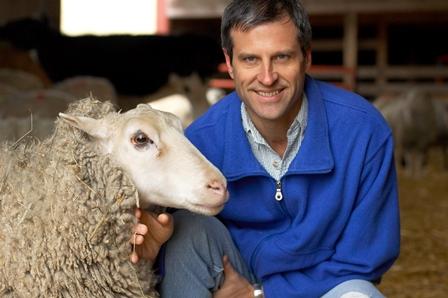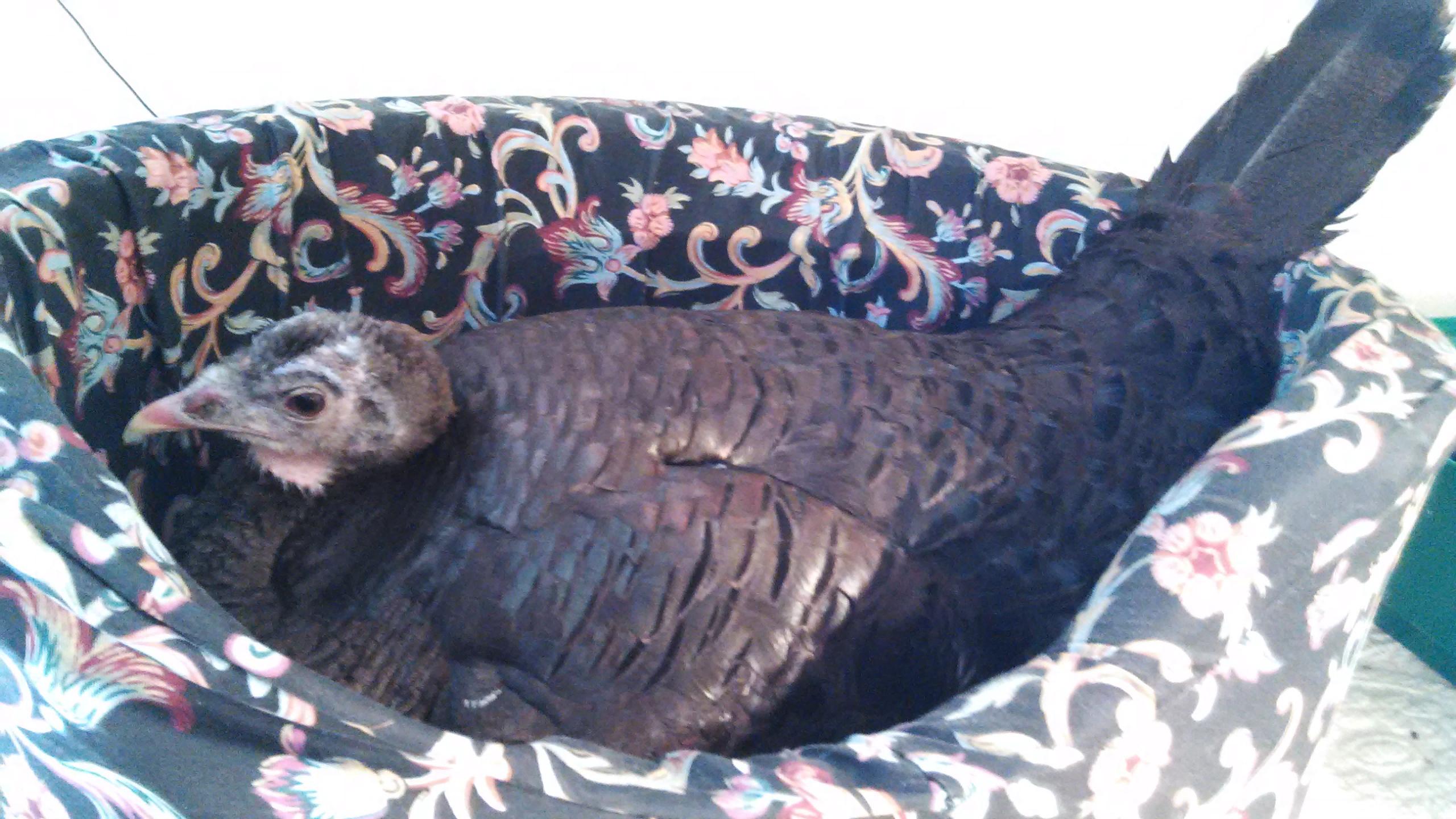 Tallulah the turkey was unable to hatch offspring of her own, so she's adopted orphaned mallard ducklings. (Fox Valley Wildlife Center)
Tallulah the turkey was unable to hatch offspring of her own, so she's adopted orphaned mallard ducklings. (Fox Valley Wildlife Center)
The natural world isn't always fair, but a recent animal rescue and cross-species adoption illustrates the universal power of helping others.
Two weeks after their mother was killed by a red-tailed hawk in northwest suburban Elgin, orphaned mallard duck eggs that were adopted by an injured turkey at the Fox Valley Wildlife Center have hatched.
The story began on April 14, when registered nurse and self-professed animal lover Jean Lowe was told a hawk had attacked a mallard hen outside of the emergency room where she was working at Advocate Sherman Hospital.
“The nurse working in triage called me and said she and a lot of people in the waiting room witnessed a hawk swoop down and kill a mother mallard duck,” Lowe said. “The hawk took off with her and left behind all these eggs in a nest on the hill.”
Hospital staff waited to see if a male mallard – called a drake – would take the parental reins, but none did. Mallard drakes typically abandon a nest to join a group of other males once incubation of the eggs has begun.
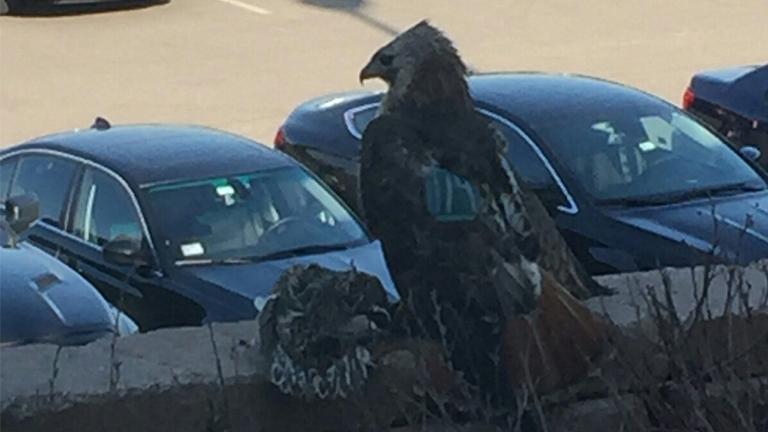 Several people at Advocate Sherman Hospital saw the red-tailed hawk attack the mother mallard duck. A hospital employee took a photo of the hawk and its kill before it flew off with the duck. (Advocate Sherman Hospital)
Several people at Advocate Sherman Hospital saw the red-tailed hawk attack the mother mallard duck. A hospital employee took a photo of the hawk and its kill before it flew off with the duck. (Advocate Sherman Hospital)
The eggs remained untouched until later in the day, when patient care technician Hassan John scaled an embankment to retrieve all 18 abandoned duck eggs and bring them to Lowe.
By the end of her shift, the Fox Valley Wildlife Center had already closed, so Lowe did some research before taking the eggs home.
“I grew up on a farm, but I had never done anything like this,” Lowe said. “I read that you’re supposed to keep them warm and turn them three to four times a day.”
Lowe wrapped the eggs in blankets and towels, then placed a space heater near them. She checked them throughout the night, turning them periodically. The next morning, she brought the eggs to the Fox Valley Wildlife Center.
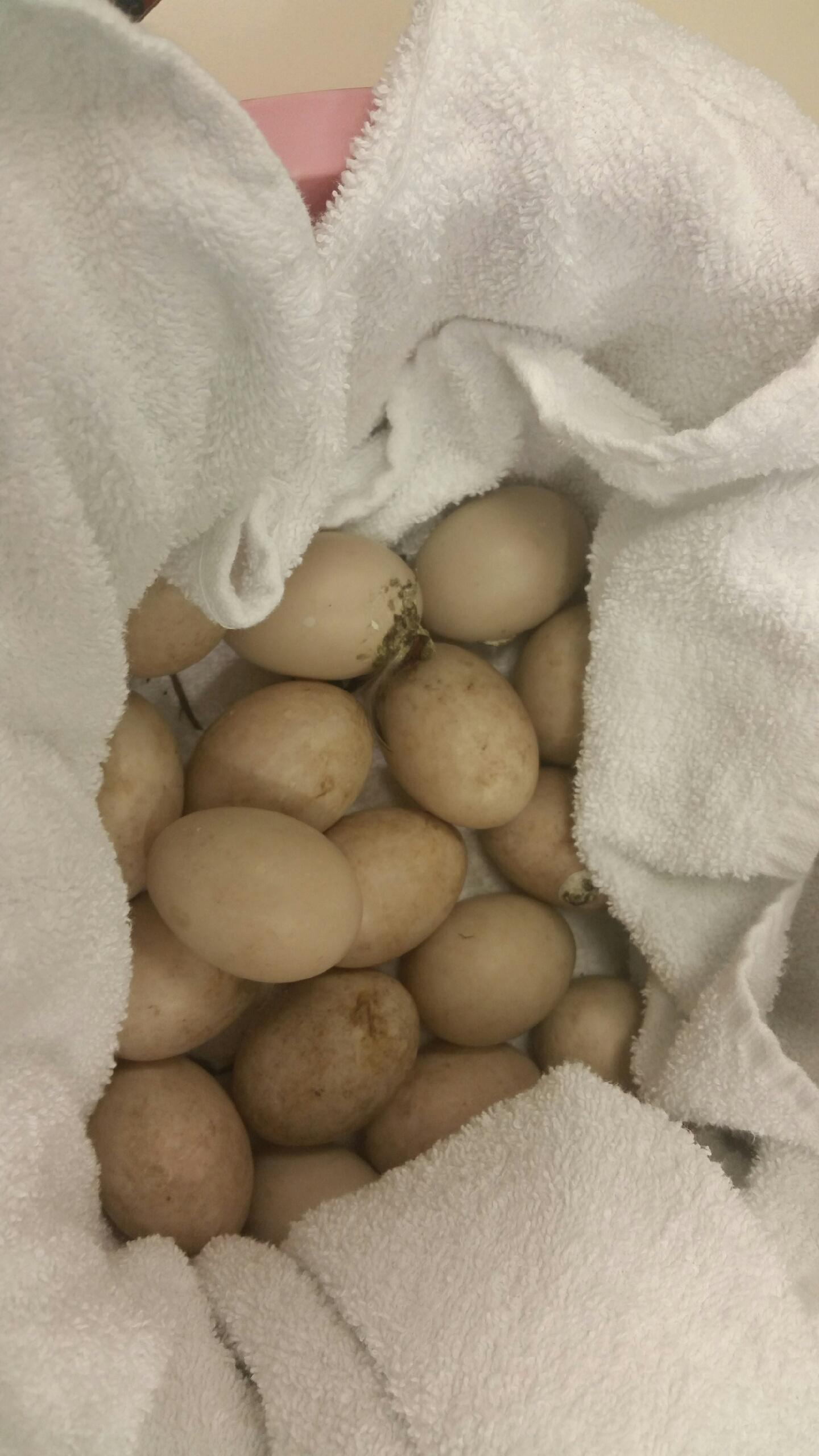 Nurse Jean Lowe took careful care of the 18 mallard eggs overnight before taking them to Fox Valley Wildlife Center the next morning. (Jean Lowe)
Nurse Jean Lowe took careful care of the 18 mallard eggs overnight before taking them to Fox Valley Wildlife Center the next morning. (Jean Lowe)
The timing couldn’t have been better. Staff at the wildlife center say Tallulah, a 1-and-a-half-year-old turkey living at the facility, was feeling motherly and "getting moody."
Tate said Tallulah had been laying eggs all winter, which is atypical in the wild, but since there is no male turkey at the wildlife center to fertilize them, the eggs never hatched. A mother turkey rarely leaves her nest of eggs, and since they weren’t hatching, it was affecting Tallulah’s otherwise friendly disposition.
The turkey was brought to the wildlife center as a chick after a nearby resident noticed she had a broken wing. The center doesn't normally keep animals, but education director Donna Tate knew Tallulah would have no chance for survival in the wild once it became apparent the bird would not regain its ability to fly.
“She can run 35 miles per hour, but as a sprint, she can’t sustain that speed,” Tate said. “A coyote can run 55 miles per hour, so she’s doomed.”
Tate now had to creatively deal with the problem of a motherly turkey and abandoned eggs.
“To try to get her to stop laying eggs and to reset her hormones, I bought her some fake eggs at Easter time to sit on,” Tate said. “But she was losing weight, so we were going to remove them the same day the duck eggs were brought in.”
Tate took Tallulah for a walk to “get her mind off her troubles,” during which the fake eggs were replaced with the mallard duck eggs – 13 of which were deemed viable out of the original 18-egg clutch.
“When she came to the nest, she turned the eggs and sat right down,” Tate said. “If we needed to intervene, then we would have, but it wasn’t necessary, so I’m proud of her.”
Tallulah sat on the eggs for two weeks before Tate noticed a beak breaking through a shell around 11 a.m. Thursday. Almost immediately, the foster turkey mother and her adopted duckling began cooing and chirping at each other.
Over the next 12 hours, Tate said nine out of the 13 mallard duck eggs hatched. As of writing, the center said one of the eggs "will not make it" and three are still being incubated.
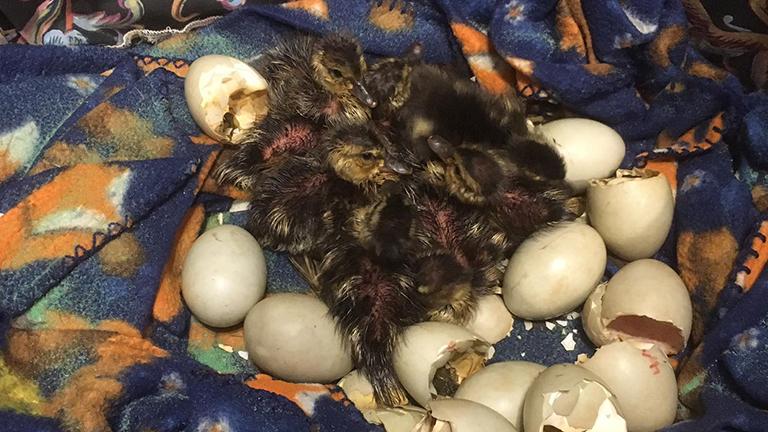 On Thursday, nine ducklings hatched from the 13 eggs that were deemed viable by the wildlife center. (Fox Valley Wildlife Center)
On Thursday, nine ducklings hatched from the 13 eggs that were deemed viable by the wildlife center. (Fox Valley Wildlife Center)
Tate said the differences between the bird species were noticeable soon after the duck eggs hatched.
“She was running around wanting the babies to follow her,” she said. “They would kind of try, but she has really long legs and they’re so tiny, so for every one step, they have to take 15.”
Tate said the mother turkey appeared confused and began calling out to her team of ducklings, but after some time, she sat close to the ducklings and kept them warm instead of sprinting ahead of them.
“She’s learning that they have limitations that she didn’t understand at first,” Tate said.
The ducklings have quickly attached to their new adopted mother.
“They definitely know she’s mama,” Tate said. “She walks away and they are peeping and then she comes back talking to them and the ducklings immediately quiet down when they saw her.”
The center plans to keep Tallulah and the nine ducklings together until the mallards are mature enough to be released into the wild, where mallard ducks will kill unfamiliar ducklings that try to join their brood.
The Fox Valley Wildlife Center is a non-profit wildlife hospital located in Elburn, roughly 50 miles from Chicago. Since 2001, they’ve been treating sick, injured or orphaned wild animals in and around Kane County. Animal lovers can help by volunteering, donating or purchasing much-needed animal care items, like bird cages, for the wildlife center.
Follow Evan Garcia on Twitter: @EvanRGarcia
Related stories from "Chicago Tonight"
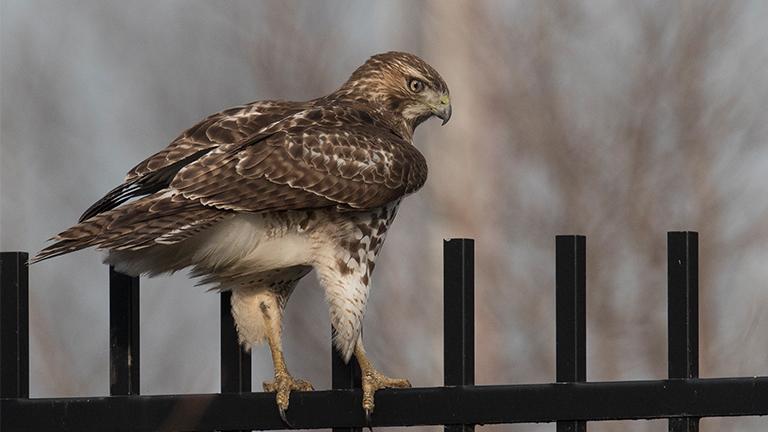 What's That Sound? Distinctive Birdcalls Heard in Chicago
What's That Sound? Distinctive Birdcalls Heard in Chicago
April 5, 2016: You don't have to be an expert birder or ecologist to enjoy songs and calls from native and foreign birds in Chicago this time of year. Here's what to listen for.
September 18, 2013: The horrors of the meatpacking industry are well-documented in history but the current state of meat production may be equally as grim.

